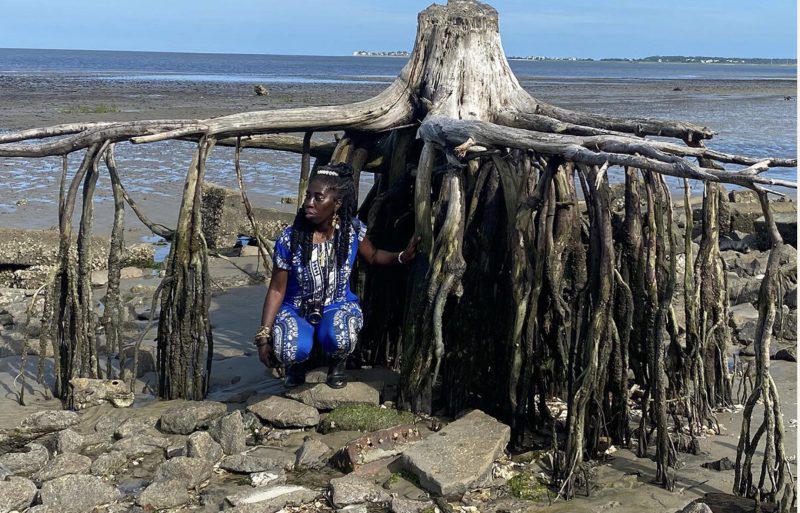
Descendants of enslaved West Africans brought to the Lowcountry to cultivate rice, the Gullah/Geechee have a proud, rich history and special kinship with their land which extends from Jacksonville, NC to Jacksonville, FL. But their home is under attack on many fronts: Climate change, oil drilling and seismic blasting, ocean acidification, encroaching development, and the complexities of heirs’ properties are huge issues for the Gullah/Geechee people. Queen Quet Marquetta L. Goodwine, Chieftess of the Gullah Geechee Nation, founded the Gullah/Geechee Sea Island Coalition (G/GSIC) in 1996 to preserve and celebrate the heritage, culture, and language of her people, and has devoted her life to its mission — “We fight for our sacred ancestral lands and the waters that surround us because these are the places that have allowed our families to be self-sufficient for generations and we want these places to remain safe and healthy for future generations to do the same.”

The Gullah/Geechee Nation lives along the coast of southeastern United States, stretching from Jacksonville, North Carolina to Jacksonville, Florida, encompassing all of the sea islands and 30-35 miles inland to the St. Johns River.
Headquartered on St. Helena Island, SC, the Gullah/Geechee Sea Island Coalition has been working on cultural sustainability for over 28 years. Raising awareness and building the capacity of the community to advocate for its rights are paramount for leaders such as Queen Quet. She has spoken before the U.N., the U.S. State Department, and countless legislative bodies in the Carolinas, Georgia, and Florida; acted as an Expert Commissioner in the U.S. Department of the Interior; participated in the White House Conference on Conservation; and co-produced an Emmy-nominated film. Opposing a proposed eco-tourism resort on a low-lying, erosional barrier island near Saint Helena’s, G/GSIC presented a petition with over 30,000 signatures to state and local officials, citing that native communities have relied on the island and its surrounding marshes for sustenance and commercial fishing for generations. In a triumph for the Gullah/Geechee, the zoning board rejected the proposed development.